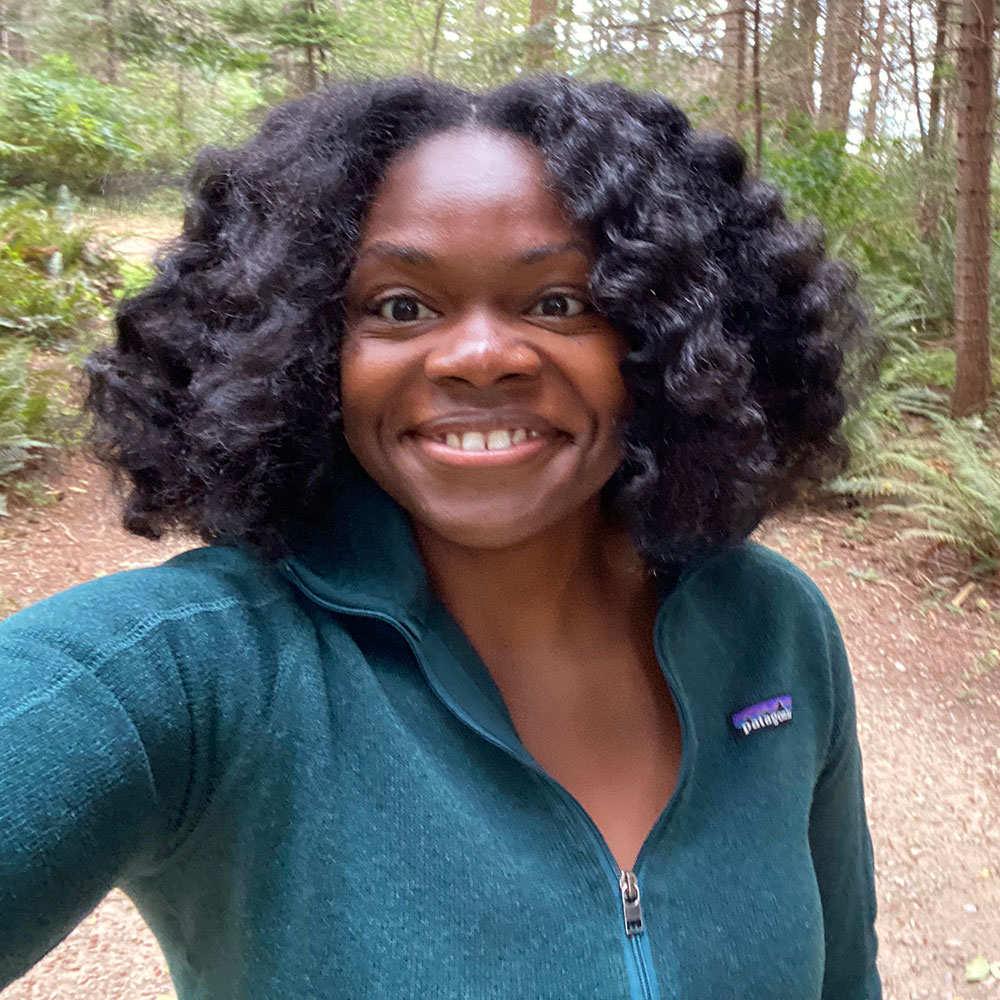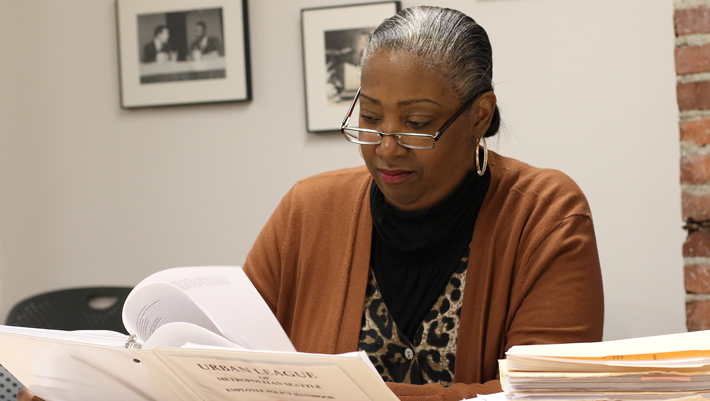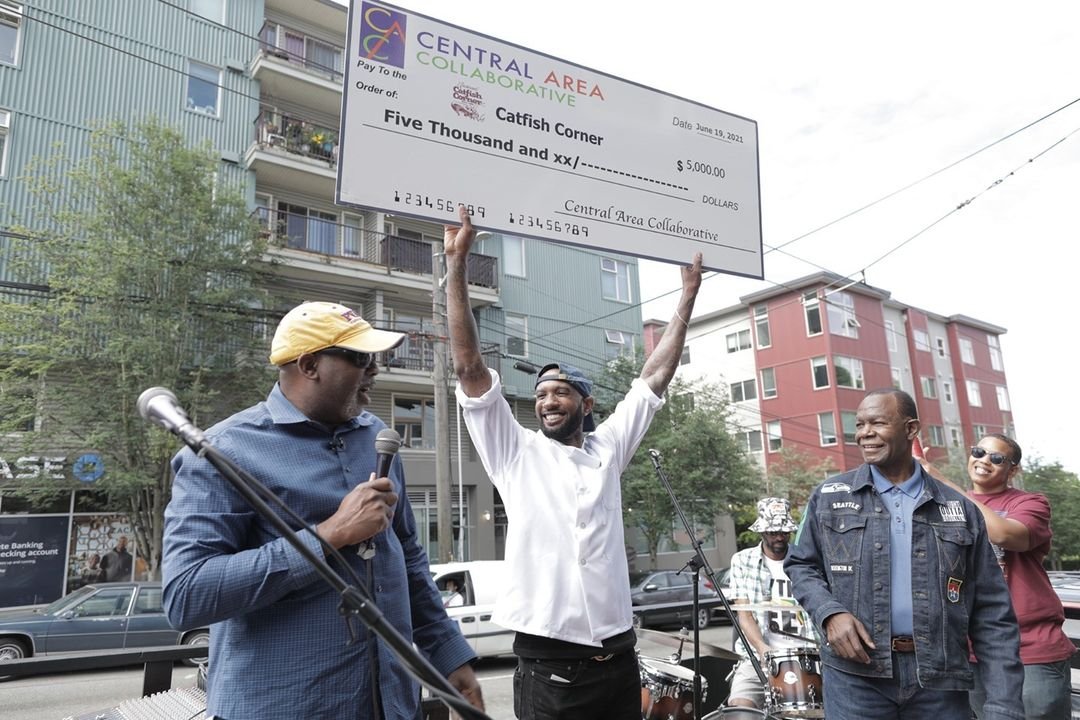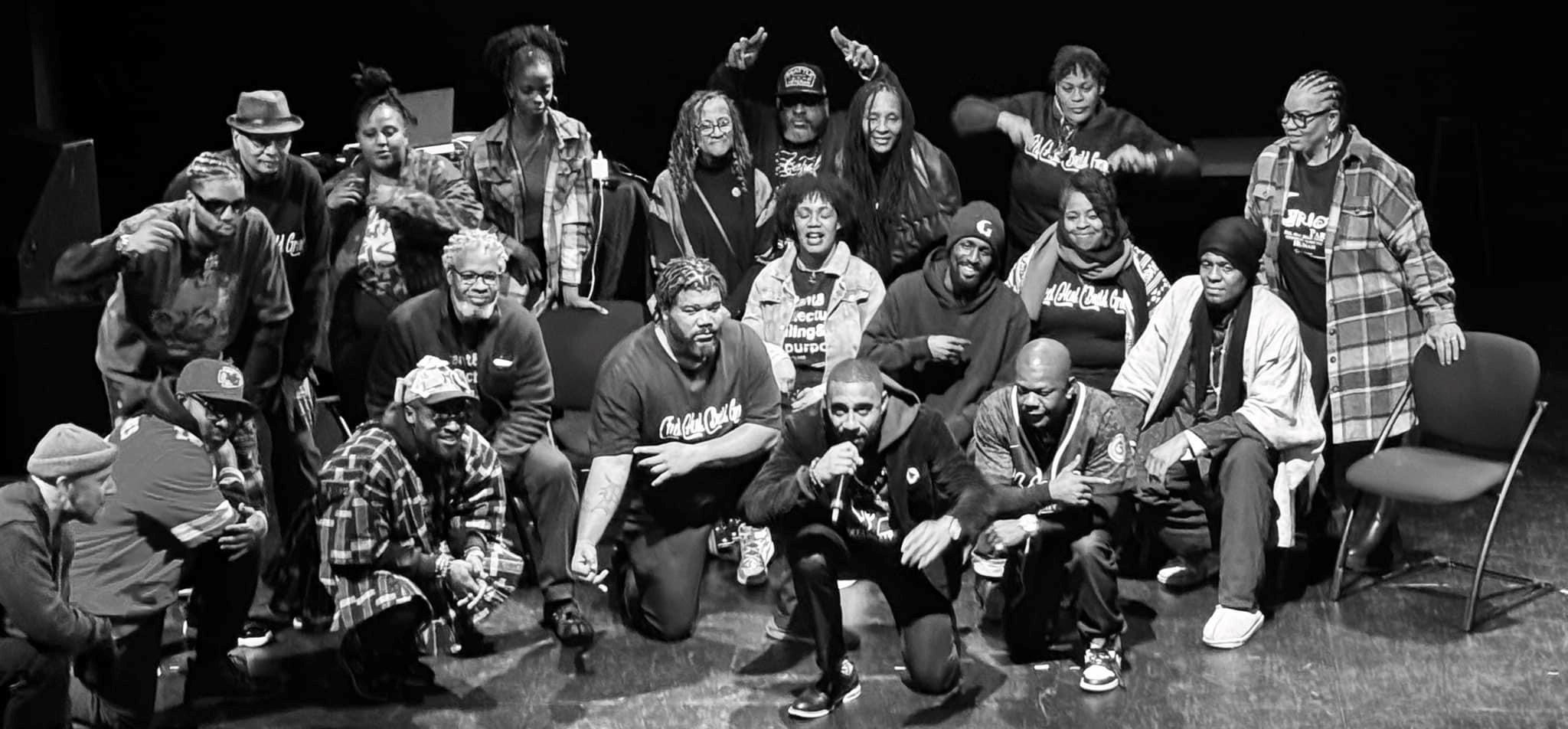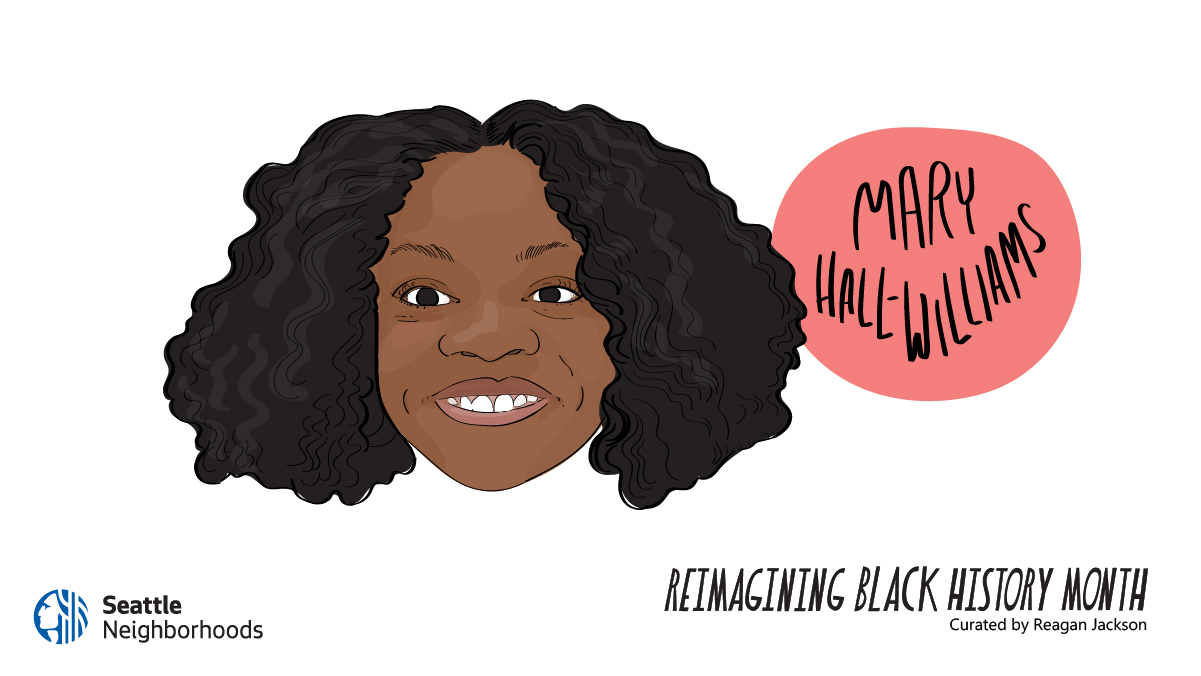
In celebration of Black History Month, we have invited community leader and activist, Reagan Jackson, to curate a series of community stories and profiles that both amplify the Black experience right now and imagine a new Black future in Seattle. Stories will be published throughout the month under #ReimaginingBlackHistoryMonth.
Remembering and Imagining our Stories
by Mary Hall-Williams
In which I remember my people. Most of whom took their stories with them when they passed. Some of whom I never had the pleasure of meeting. Anita, Sidney, Louise, Robert, Elcinda, William, Mary, Fred, Lenora, Raymond, Robert, Leslie Jr, Leslie Sr. Willie, May, Isaac, Lucretia. Somewhere along the way I got so caught up Forgot to honor the memory keepers of my family. Let the grief of loss slip loose my memories. Forgot my father’s face. My grandparents. A beloved great Aunt. The bird named Mikey that she gave me. Their eyes. The intonations of their voices. The ways they laughed. The placement of the moles on their faces and necks. The way they tended their gardens. The way their kitchens smelled on Sunday morning. Had to retune my mind. Had to reclaim my memories. Made a decision to imagine. To listen to that inner knowing so loud. Quiet. I can almost not quite sometimes hear it. Made my own origin stories. Imagined a before. In the beginning… My grandmama used to tell me. The very beginning child, not that other genesis Before there was the white man’s America Before Adams and Abels and the so-called flood Before white Jesus and those white masters and that white violence There was a god. Many gods really And all of them were black. And all of them were born of the deep dark mothers with tender hands Who Danced with all that was hidden in the brilliance of the deep dark that they called nothingness and night Mothers, I mean gods Who breathed Who inhaled the darkness And exhaled the world. Did you hear me child, I said they exhaled the world Breathed it into being and danced. The sound of their feet sent rumbles through the darkness The sound of their feet shook the stars into being Gave rise to our continent our mountains our sky. They laughed with an audacity that sprouted oceans. Laughed out their love and called our bodies into being.
It’s Black History Month and that means my only intention this month has been to be insufferably, audaciously BLACK. If you follow me on social media, you’ve likely seen me posting pro-Black content with an audacity that is unmatched at all other times of the year. All month long I’ve been refusing to move for white folks on sidewalks, interrupting my automatic apologies to tell people in grocery stores to get the hell out of my way, and loudly lamenting Seattle’s specific brand of liberalist caucasity with “during Black History Month?!” I’ve been out in public ready to chant “Black Lives Matter” loudly and with a slow clap at a moment’s notice,
I’ve been allowing my blackness to take up as much space as I want it to at any given moment while also reminding folks that, rather than minding my business, they can redirect that energy toward dismantling the systems of oppression that are still very much alive in this country. Mostly, I’ve been laughing with the audacity of all the ancestors whose names I do not know but whose mannerisms I embody and whose features live in harmony on my face. Mostly, I’ve been laughing with the audacity of an unbroken spirit and it has been full to the brim with joy.
Being born and raised in Seattle (yes, city proper), I learned early that audacious blackness was to be confined to the home, family, and Black church. The public was a separate domain. Audacious blackness didn’t belong in our neighborhood PCC (off Wilson) and audacious blackness certainly didn’t belong at the egregiously racist private Christian school I attended in SeaTac. Mostly I learned that in predominantly white spaces there is a particular kind of social capital that is awarded to those Blacks who can impress and “articulate.” I learned the complicated dances of being a likable, mostly non-threatening Black girl, and for a time I was black in lowercase letters. Not too loud, not like those other “Blacks.” Quick to apologize. Hungry for my own history and community, but quietly. Quick to swallow whole parts of my experience rather than incur the risk of white discomfort (read rage). I learned to be “human first” and not to let the systemic violence that shaped my world get me down.
During the racial uprisings of 2020, I posted an open journal entry to my Facebook page centering the longing for Black community that has shaped my life in Seattle. I wrote that I wanted to exist fully in the love that is other Black people. I wanted healing Black spaces that existed as publicly as brown bodies in the streets.
I imagined allies protecting space.
I imagined grief carried in community.
I imagined laughter and art. Poetry and dance.
I imagined resting together.
I imagined a city that could love Black folks enough to let us exist in this city together without interference.
What matters about this is that it happened. People imagined with me and within five days the space we imagined was real and happening all around us. Black Imaginings have shaped our past, present, and future. Black imaginings will carry us to new worlds.
My invitation this month is to take a few minutes to imagine a time before colonization, before the forgetting of histories.
- What does it feel like?
- What does it sound like?
- What are the mythologies?
